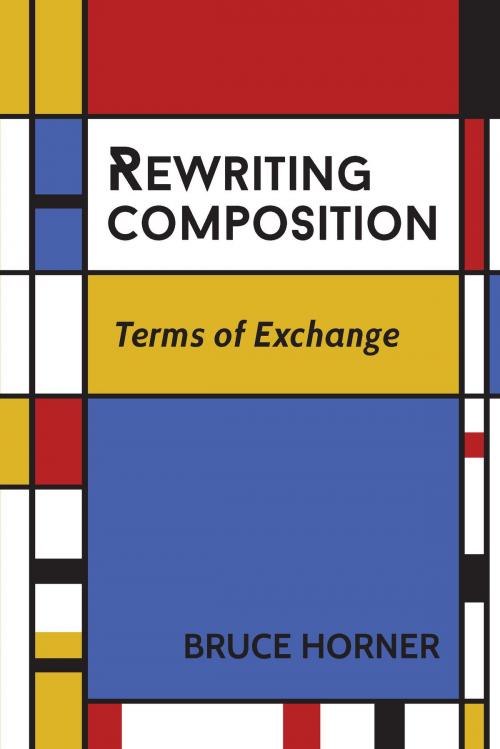Rewriting Composition
Terms of Exchange
Nonfiction, Reference & Language, Language Arts, Writing & Publishing, Composition & Creative Writing| Author: | Bruce Horner | ISBN: | 9780809334513 |
| Publisher: | Southern Illinois University Press | Publication: | February 22, 2016 |
| Imprint: | Southern Illinois University Press | Language: | English |
| Author: | Bruce Horner |
| ISBN: | 9780809334513 |
| Publisher: | Southern Illinois University Press |
| Publication: | February 22, 2016 |
| Imprint: | Southern Illinois University Press |
| Language: | English |
Bruce Horner’s *Rewriting Composition: Terms of Exchange *shows how dominant inflections of key terms in composition—language, labor, value/evaluation, discipline, and composition itself—reinforce composition’s low institutional status and the poor working conditions of many of its instructors and tutors. Placing the circulation of these terms in multiple contemporary contexts, including globalization, world Englishes, the diminishing role of labor and the professions, the “information” economy, and the privatization of higher education, Horner demonstrates ways to challenge debilitating definitions of these terms and to rework them and their relations to one another.
Each chapter of Rewriting Composition focuses on one key term, discussing how limitations set by dominant definitions shape and direct what compositionists do and how they think about their work. The first chapter, “Composition,” critiques a discourse of composition as lacking and therefore as in need of being either put to an end, renamed, aligned with other fields, or supplemented with work in other disciplines or other forms of composition. Rather than seeing composition as something to be abandoned, replaced, or supplemented, Horner suggests ways of productively engaging with the ordinary work of composition whose ostensible lack is assumed in the dominant discourse. Subsequent chapters apply this reconsideration to other key terms, critiquing dominant conceptions of “language” and English as stable; examining how “labor” in composition is divorced from the productive force of social relations to which language work contributes; rethinking the terms of value by which the labor of composition teachers, administrators, and students is measured; and questioning the application of conventional definitions of professional academic disciplinarity to composition. By exposing limitations in dominant conceptions of the work of composition and by modeling and opening up space for new conceptions of key terms, Rewriting Composition offers teachers of composition and rhetoric, writing scholars, and writing program administrators the critical tools necessary for charting the future of composition studies.
Bruce Horner’s *Rewriting Composition: Terms of Exchange *shows how dominant inflections of key terms in composition—language, labor, value/evaluation, discipline, and composition itself—reinforce composition’s low institutional status and the poor working conditions of many of its instructors and tutors. Placing the circulation of these terms in multiple contemporary contexts, including globalization, world Englishes, the diminishing role of labor and the professions, the “information” economy, and the privatization of higher education, Horner demonstrates ways to challenge debilitating definitions of these terms and to rework them and their relations to one another.
Each chapter of Rewriting Composition focuses on one key term, discussing how limitations set by dominant definitions shape and direct what compositionists do and how they think about their work. The first chapter, “Composition,” critiques a discourse of composition as lacking and therefore as in need of being either put to an end, renamed, aligned with other fields, or supplemented with work in other disciplines or other forms of composition. Rather than seeing composition as something to be abandoned, replaced, or supplemented, Horner suggests ways of productively engaging with the ordinary work of composition whose ostensible lack is assumed in the dominant discourse. Subsequent chapters apply this reconsideration to other key terms, critiquing dominant conceptions of “language” and English as stable; examining how “labor” in composition is divorced from the productive force of social relations to which language work contributes; rethinking the terms of value by which the labor of composition teachers, administrators, and students is measured; and questioning the application of conventional definitions of professional academic disciplinarity to composition. By exposing limitations in dominant conceptions of the work of composition and by modeling and opening up space for new conceptions of key terms, Rewriting Composition offers teachers of composition and rhetoric, writing scholars, and writing program administrators the critical tools necessary for charting the future of composition studies.















